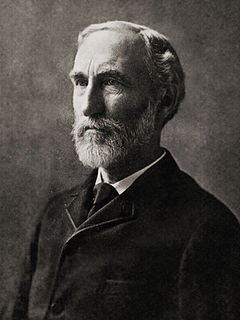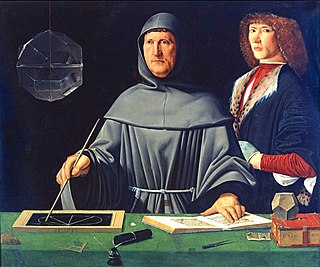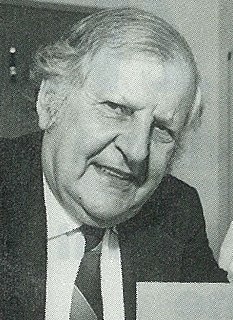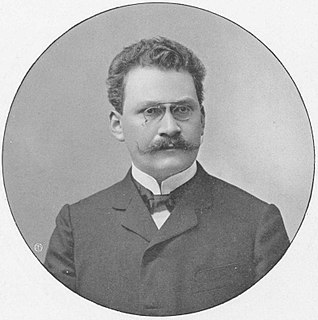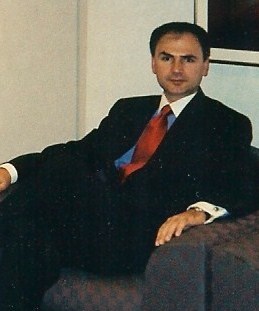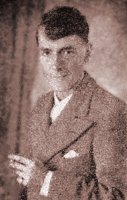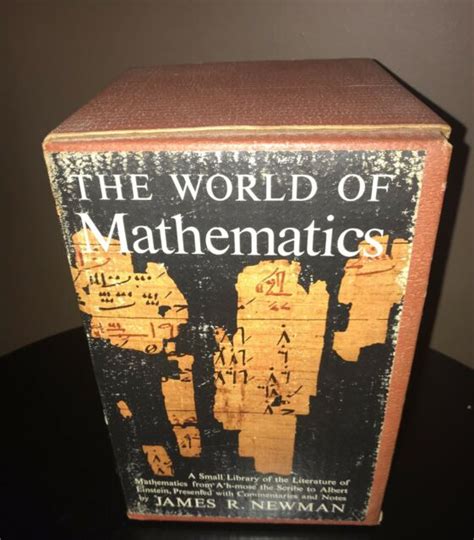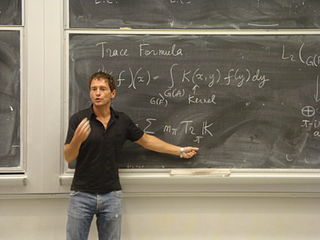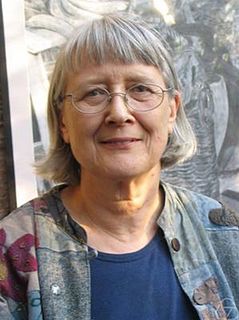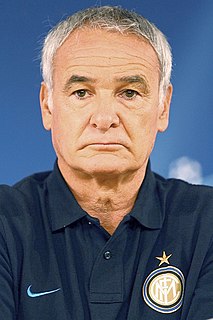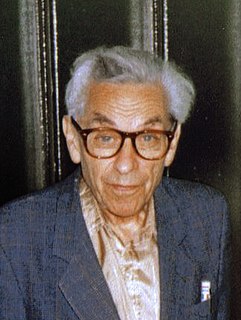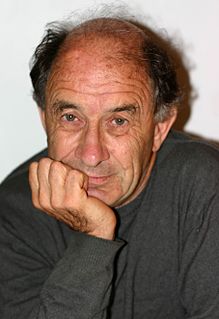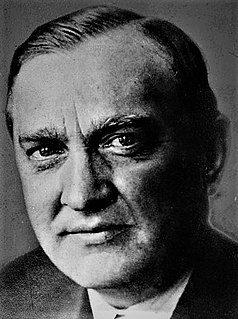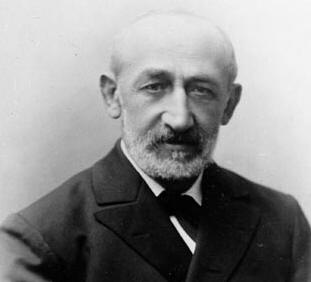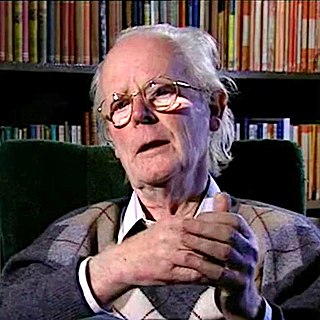Top 1200 Mathematics Quotes & Sayings - Page 4
Explore popular Mathematics quotes.
Last updated on April 16, 2025.
[P]olitical and social and scientific values ... should be correlated in some relation of movement that could be expressed in mathematics, nor did one care in the least that all the world said it could not be done, or that one knew not enough mathematics even to figure a formula beyond the schoolboy s=(1/2)gt2. If Kepler and Newton could take liberties with the sun and moon, an obscure person ... could take liberties with Congress, and venture to multiply its attraction into the square of its time. He had only to find a value, even infinitesimal, for its attraction.
Mathematics, rightly viewed, possesses not only truth, but supreme beauty a beauty cold and austere, like that of sculpture, without appeal to any part of our weaker nature, without the georgeous trappings of painting or music, yet sublimely pure, and capable of a stern perfection such as only the greatest art can show. The true spirit of delight, the exaltation, the sense of being more than Man, which is the touchstone of the highest excellence, is to be found in mathematics as surely as in poetry.
I never could do anything with figures, never had any talent for mathematics, never accomplished anything in my efforts at that rugged study, and to-day the only mathematics I know is multiplication, and the minute I get away up in that, as soon as I reach nine times seven- [He lapsed into deep thought, trying to figure nine times seven. Mr. McKelway whispered the answer to him.] I've got it now. It's eighty-four. Well, I can get that far all right with a little hesitation. After that I am uncertain, and I can't manage a statistic.
It is a melancholy experience for a professional mathematician to find himself writing about mathematics. The function of a mathematician is to do something, to prove new theorems, to add to mathematics, and not to talk about what he or other mathematicians have done. Statesmen despise publicists, painters despise art-critics, and physiologists, physicists, or mathematicians have usually similar feelings: there is no scorn more profound, or on the whole more justifiable, than that of the men who make for the men who explain. Exposition, criticism, appreciation, is work for second-rate minds.
The mathematics is the odd one, odd because I'm not sure how to measure its effect. It is so fundamental to my outlook on everything and yet I'm not even sure how. It must be because in my formative years it was everything to me, the single place of beauty in my life, and of breathtaking beauty at that. I still believe that pure mathematics is the most creative thing that humanity does, though I am no longer a part of it.
Though the structures and patterns of mathematics reflect the structure of, and resonate in, the human mind every bit as much as do the structures and patterns of music, human beings have developed no mathematical equivalent to a pair of ears. Mathematics can only be "seen" with the "eyes of the mind". It is as if we had no sense of hearing, so that only someone able to sight read music would be able to appreciate its patterns and harmonies.
Our teaching of mathematics revolves around a fundamental conflict. Rightly or wrongly, students are required to master a series of mathematical concepts and techniques, and anything that might divert them from doing so is deemed unnecessary. Putting mathematics into its cultural context, explaining what is has done for humanity, telling the story of its historical development, or pointing out the wealth of unsolved problems or even the existence of topics that do not make it into school textbooks leaves less time to prepare for the exam. So most of these things aren't discussed.
Just by studying mathematics we can hope to make a guess at the kind of mathematics that will come into the physics of the future... If someone can hit on the right lines along which to make this development, it may lead to a future advance in which people will first discover the equations and then, after examining them, gradually learn how to apply them... My own belief is that this is a more likely line of progress than trying to guess at physical pictures.
He is not a true man of science who does not bring some sympathy to his studies, and expect to learn something by behavior as well as by application. It is childish to rest in the discovery of mere coincidences, or of partial and extraneous laws. The study of geometry is a petty and idle exercise of the mind, if it is applied to no larger system than the starry one. Mathematics should be mixed not only with physics but with ethics; that is mixed mathematics. The fact which interests us most is the life of the naturalist. The purest science is still biographical.
No one really understood music unless he was a scientist, her father had declared, and not just a scientist, either, oh, no, only the real ones, the theoreticians, whose language was mathematics. She had not understood mathematics until he had explained to her that it was the symbolic language of relationships. "And relationships," he had told her, "contained the essential meaning of life."
When I came back from Munich, it was September, and I was Professor of Mathematics at the Eindhoven University of Technology. Later I learned that I had been the Department's third choice, after two numerical analysts had turned the invitation down; the decision to invite me had not been an easy one, on the one hand because I had not really studied mathematics, and on the other hand because of my sandals, my beard and my "arrogance" (whatever that may be).
The world of ideas which it [mathematics] discloses or illuminates, the contemplation of divine beauty and order which it induces, the harmonious connexion of its parts, the infinite hierarchy and absolute evidence of the truths with which it is concerned, these, and such like, are the surest grounds of the title of mathematics to human regard, and would remain unimpeached and unimpaired were the plan of the universe unrolled like a map at our feet, and the mind of man qualified to take in the whole scheme of creation at a glance.
Mathematical economics is old enough to be respectable, but not all economists respect it. It has powerful supporters and impressive testimonials, yet many capable economists deny that mathematics, except as a shorthand or expository device, can be applied to economic reasoning. There have even been rumors that mathematics is used in economics (and in other social sciences) either for the deliberate purpose of mystification or to confer dignity upon common places as French was once used in diplomatic communications.
... the word "theory" ... was originally an Orphic word, which Cornford interprets as "passionate sympathetic contemplation" ... For Pythagoras, the "passionate sympathetic contemplation" was intellectual, and issued in mathematical knowledge ... To those who have reluctantly learnt a little mathematics in school this may seem strange; but to those who have experienced the intoxicating delight of sudden understanding that mathematics gives, from time to time, to those who love it, the Pythagorean view will seem completely natural.
When the mathematician says that such and such a proposition is true of one thing, it may be interesting, and it is surely safe. But when he tries to extend his proposition to everything, though it is much more interesting, it is also much more dangerous. In the transition from one to all, from the specific to the general, mathematics has made its greatest progress, and suffered its most serious setbacks, of which the logical paradoxes constitute the most important part. For, if mathematics is to advance securely and confidently, it must first set its affairs in order at home.
As I considered the matter carefully it gradually came to light that all those matters only were referred to mathematics in which order and measurements are investigated, and that it makes no difference whether it be in numbers, figures, stars, sounds or any other object that the question of measurement arises. I saw consequently that there must be some general science to explain that element as a whole which gives rise to problems about order and measurement, restricted as these are to no special subject matter. This, I perceived was called 'universal mathematics'.
General Systems Theory is a name which has come into use to describe a level of theoretical model-building which lies somewhere between the highly generalized constructions of pure mathematics and the specific theories of the specialized disciplines. Mathematics attempts to organize highly general relationships into a coherent system, a system however which does not have any necessary connections with the "real" world around us. It studies all thinkable relationships abstracted from any concrete situation or body of empirical knowledge.
We know that mathematicians care no more for logic than logicians for mathematics. The two eyes of science are mathematics and logic; the mathematical set puts out the logical eye, the logical set puts out the mathematical eye; each believing that it sees better with one eye than with two. Note that De Morgan, himself, only had sight with only one eye.
Gel'fand amazed me by talking of mathematics as though it were poetry. He once said about a long paper bristling with formulas that it contained the vague beginnings of an idea which could only hint at and which he had never managed to bring out more clearly. I had always thought of mathematics as being much more straightforward: a formula is a formula, and an algebra is an algebra, but Gel'fand found hedgehogs lurking in the rows of his spectral sequences!
An Arab activist can take pride in the Arab heritage of mathematics and science or he can take pride in his religion, and there's pride to be taken in both. But one of them could be exploited much more easily and has been in the context of world conflict. And the other is very difficult to do on the grounds that science and literature and mathematics have been among the uniting factors in the history of the world.
One of the biggest problems of mathematics is to explain to everyone else what it is all about. The technical trappings of the subject, its symbolism and formality, its baffling terminology, its apparent delight in lengthy calculations: these tend to obscure its real nature. A musician would be horrified if his art were to be summed up as "a lot of tadpoles drawn on a row of lines"; but that"s all that the untrained eye can see in a page of sheet music... In the same way, the symbolism of mathematics is merely its coded form, not its substance.
Mathematics is really an art, not a science. You could say science also is an art. So I would say the difference is something you can't really describe - you can only recognize. You hear somebody playing the violin, and it was Fritz Kreisler or it was somebody else, and you can tell the difference. It is so in almost every art. We just don't understand why it is that there are just a few people who are just completely off the scale and the rest of them are just mediocre. And we don't know why. But I say it's certainly true of mathematics.
If you are receptive and humble, mathematics will lead you by the hand. Again and again, when I have been at a loss how to proceed, I have just had to wait until I have felt the mathematics led me by the hand. It has led me along an unexpected path, a path where new vistas open up, a path leading to new territory, where one can set up a base of operations, from which one can survey the surroundings and plan future progress.
We find sects and parties in most branches of science; and disputes which are carried on from age to age, without being brought to an issue. Sophistry has been more effectually excluded from mathematics and natural philosophy than from other sciences. In mathematics it had no place from the beginning; mathematicians having had the wisdom to define accurately the terms they use, and to lay down, as axioms, the first principles on which their reasoning is grounded. Accordingly, we find no parties among mathematicians, and hardly any disputes.
A Christian boy or girl can learn mathematics, for example, from a teacher who is not a Christian; and truth is truth however learned. But while truth is truth however learned, the bearing of truth, the meaning of truth, the purpose of truth, even in the sphere of mathematics, seem entirely different to the Christian from that which they seem to the non-Christian; and that is why a truly Christian education is possible only when Christian conviction underlies not a part but all, of the curriculum of the school.
Yes, I share your concern: how to program well -though a teachable topic- is hardly taught. The situation is similar to that in mathematics, where the explicit curriculum is confined to mathematical results; how to do mathematics is something the student must absorb by osmosis, so to speak. One reason for preferring symbol-manipulating, calculating arguments is that their design is much better teachable than the design of verbal/pictorial arguments. Large-scale introduction of courses on such calculational methodology, however, would encounter unsurmoutable political problems.
